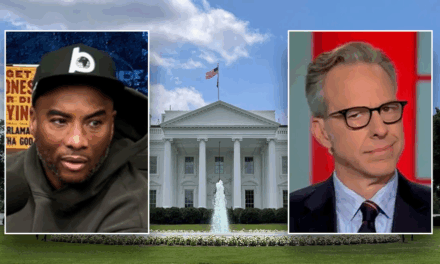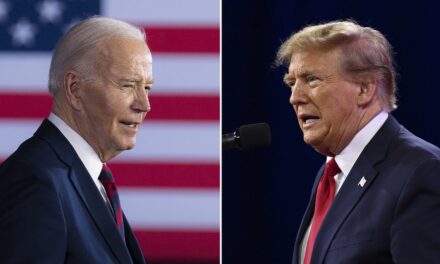In the wake of recent electoral challenges and shifting political landscapes, Democratic leaders are reportedly engaging in what they describe as ‘informal conversations’ regarding transgender issues. This internal discourse comes after the party faced criticism for being ‘caught flat-footed’ as it approaches the crucial 2024 election cycle. The discussions indicate a growing recognition among party officials about the need to better address and advocate for the rights and needs of the transgender community.
The increasing visibility of transgender issues within the political arena has transformed how parties strategize their platforms. As public opinion continues to evolve, the Democrats are keenly aware of the importance of recognizing and championing the rights of marginalized communities. The party’s recent struggles to effectively convey their support for transgender individuals highlight a significant gap in communication and advocacy that needs addressing.
One of the primary catalysts for these conversations is the recent surge in anti-transgender legislation proposed in various state legislatures across the country. In 2023, numerous bills aimed at restricting the rights of transgender individuals in areas such as healthcare, sports participation, and educational settings were introduced. This wave of legislation has galvanized activists and advocacy groups, prompting a renewed urgency for Democrats to solidify their stance and action plan heading into the elections.
Democratic officials recognize that merely opposing these bills is insufficient. The electorate is looking for comprehensive solutions that not only defend against discrimination but actively promote rights and access for transgender individuals. This realization has prompted party leaders to engage in discussions around creating more robust policy initiatives that adequately address the needs and rights of the transgender community.
In many states, particularly those with historically conservative leadership, the political climate surrounding transgender issues has become increasingly polarized. The 2024 elections will likely see a significant focus on how candidates approach these topics, as voters demand more accountability and clarity on where elected officials stand on transgender rights.
Within these informal conversations, Democratic leaders are also exploring strategies to reach out to transgender individuals and their allies. Effective communication and outreach efforts are crucial in bridging the gap between party leaders and the constituents who feel underrepresented. Building trust and understanding will be essential as the party seeks to maintain and galvanize support among progressive voters who prioritize LGBTQ+ rights.
Another salient point in these discussions is the role of grassroots movements and local activism in shaping the party’s approach to transgender issues. Leaders are recognizing the invaluable insights that local community advocates possess and are prioritizing partnerships with organizations that are directly engaged in the fight for transgender rights. These collaborations can provide essential resources and messaging that resonate more deeply with affected individuals.
Additionally, Democrats are considering the importance of candidate training when it comes to discussing transgender issues. Internal workshops and training sessions dedicated to educating candidates on the nuances of transgender rights, etiquette, and policy considerations are being proposed. This initiative aims to equip candidates not only with the knowledge necessary to speak on these topics but also with the confidence to engage in meaningful dialogues with constituents.
The party’s approach also encompasses the need for visibility and representation. Underrepresentation of transgender individuals within politics continues to be a glaring issue. Conversations are persisting around nominating and supporting more candidates who identify as transgender or non-binary, fundamentally shifting the dynamics of representation within the political system. This diversity in leadership can lead to a more nuanced and affirmative dialogue surrounding LGBTQ+ issues and considerations.
As the party navigates these informal conversations, there is a conscious effort to avoid the pitfalls of performative activism. Leaders are calling for concrete actions rather than mere symbolic gestures. Advocates argue that meaningful legislation and policies are crucial to foster a genuine culture of acceptance and inclusivity. The party’s commitment to supporting the transgender community will be evaluated based on their legislative actions and advocacy efforts in the coming years.
Moreover, the Democrats are acutely aware of the growing significance of social media and online platforms in shaping public discourse. In today’s digital age, narratives around issues such as transgender rights can gain traction rapidly, and public sentiment can shift in real-time. The need for strategic communication campaigns that highlight the experiences and rights of the transgender community is more imperative than ever.
As these informal discussions continue, party leaders are also forging ahead with public engagement initiatives that aim to touch base with the electorate’s perspectives on transgender rights. Listening sessions, town hall meetings, and engaging with advocacy groups are being conceptualized to ensure that diverse voices are heard and included in the party’s decision-making processes.
In addition to these grassroots efforts, the national Democratic platform is expected to reflect a stronger commitment to LGBTQ+ rights in general, with a specific emphasis on transgender issues. Presenting a united front that underscores the importance of protecting the rights of all individuals, regardless of gender identity, can significantly impact the party’s overall appeal to voters, especially among younger demographics who are increasingly prioritizing social justice and equity in their voting choices.
As political analysts observe the developments within the Democratic party, there is widespread recognition that the upcoming elections will serve as a critical barometer for the party’s commitment to LGBTQ+ issues. Democrats will need to strike a delicate balance between appealing to their traditional voter base while also making transformative strides toward inclusivity and equity.
Ultimately, the informal conversations taking place within the party represent a pivotal moment for the Democrats as they prepare for the 2024 election cycle. The need for a clear and compassionate stance on transgender issues is urgent, as the challenges facing the community intensify. The party is confronted with the task of not only communicating their support effectively but also implementing substantial changes in policies that empower and protect transgender individuals from discrimination and inequality.
As these discussions evolve into actionable strategies, all eyes will be on the Democratic party to see if they can effectively galvanize support among voters for LGBTQ+ rights and present a unified message that resonates with the diverse spectrum of voices within the community. The journey ahead will require resilience, open-mindedness, and a steadfast commitment to fostering a culture that upholds dignity and rights for every individual.
































